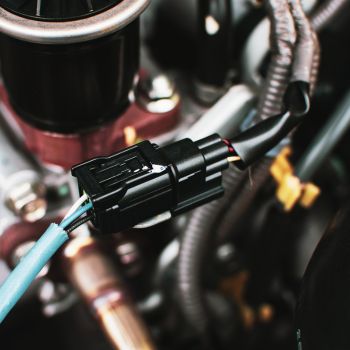 Modern vehicles are equipped with a network of sensors that continuously monitor critical functions like oil levels, tire pressure, and engine performance, sending real-time data to the Onboard Diagnostic Computer (OBD-II) located in the Engine Control Module (ECM).
Modern vehicles are equipped with a network of sensors that continuously monitor critical functions like oil levels, tire pressure, and engine performance, sending real-time data to the Onboard Diagnostic Computer (OBD-II) located in the Engine Control Module (ECM).
Sensors play a crucial role in ensuring your car runs smoothly and efficiently. Just like other mechanical components, they can be affected by wear, dirt, or electrical problems. These issues can lead to inaccurate readings, which in turn affect the overall performance of your vehicle. Understanding how these sensors work and what to watch for can help you avoid costly repairs down the road.
How Car Sensors Work
The Engine Control Module (ECM) has been a key part of vehicle design since the 1980s. It works in conjunction with the OBD-II system to collect and analyze data from various sensors. This information is used to fine-tune engine performance, fuel efficiency, and emissions. Some of the most important sensors include:
- Oxygen Sensor: Measures the amount of oxygen in the exhaust gases, helping the engine maintain the correct air-to-fuel ratio. A faulty oxygen sensor can lead to poor fuel economy, increased emissions, and rough idling.
- Wheel Speed Sensors: Part of the Anti-lock Braking System (ABS), these sensors detect the speed of each wheel and help prevent skidding during braking.
- Mass Airflow Sensor: Monitors the volume of air entering the engine, allowing the ECM to adjust fuel injection and ignition timing accordingly.
- Manifold Absolute Pressure Sensor: Measures the pressure inside the intake manifold, providing valuable data for engine management.
- Fluid Level Sensors: Track oil, coolant, and other fluid levels, alerting you when levels drop below safe thresholds.
- Tire Pressure Sensors: Monitor tire pressure and alert you if it falls below the recommended level, improving safety and fuel efficiency.
Common Sensor Issues and Signs
Over time, sensors can become dirty, damaged, or lose connectivity due to electrical issues. Exposure to engine fluids and environmental factors can also affect their performance. When a sensor fails, it can cause a range of problems, including:
- The check engine light turns on. This is often the first sign that something is wrong, even if you don’t notice any immediate changes in performance.
- Reduced fuel efficiency. Malfunctioning sensors can cause the engine to use more fuel than necessary, leading to higher gas bills and more frequent refills.
- Engine hesitation or misfiring. Inaccurate sensor data can disrupt the combustion process, causing the engine to run unevenly or stall.
- Increased emissions. A faulty oxygen sensor, for example, can result in higher levels of harmful pollutants being released into the environment.
If you're experiencing unexplained performance issues or strange warning lights, it might be time to have your sensors checked. At DaSilva’s Auto Body, our experienced technicians can perform thorough diagnostic tests to identify and resolve sensor-related problems. Don't ignore the signs—early detection can save you time, money, and headaches in the long run. Contact us today for expert service and peace of mind.
Calcium Chloride,Calcium Chloride Powder,Calcium Chloride Liquid,Anhydrous Cacl2
TIANJIN LIHE TRADING CO.,LTD , https://www.lihecorp.com